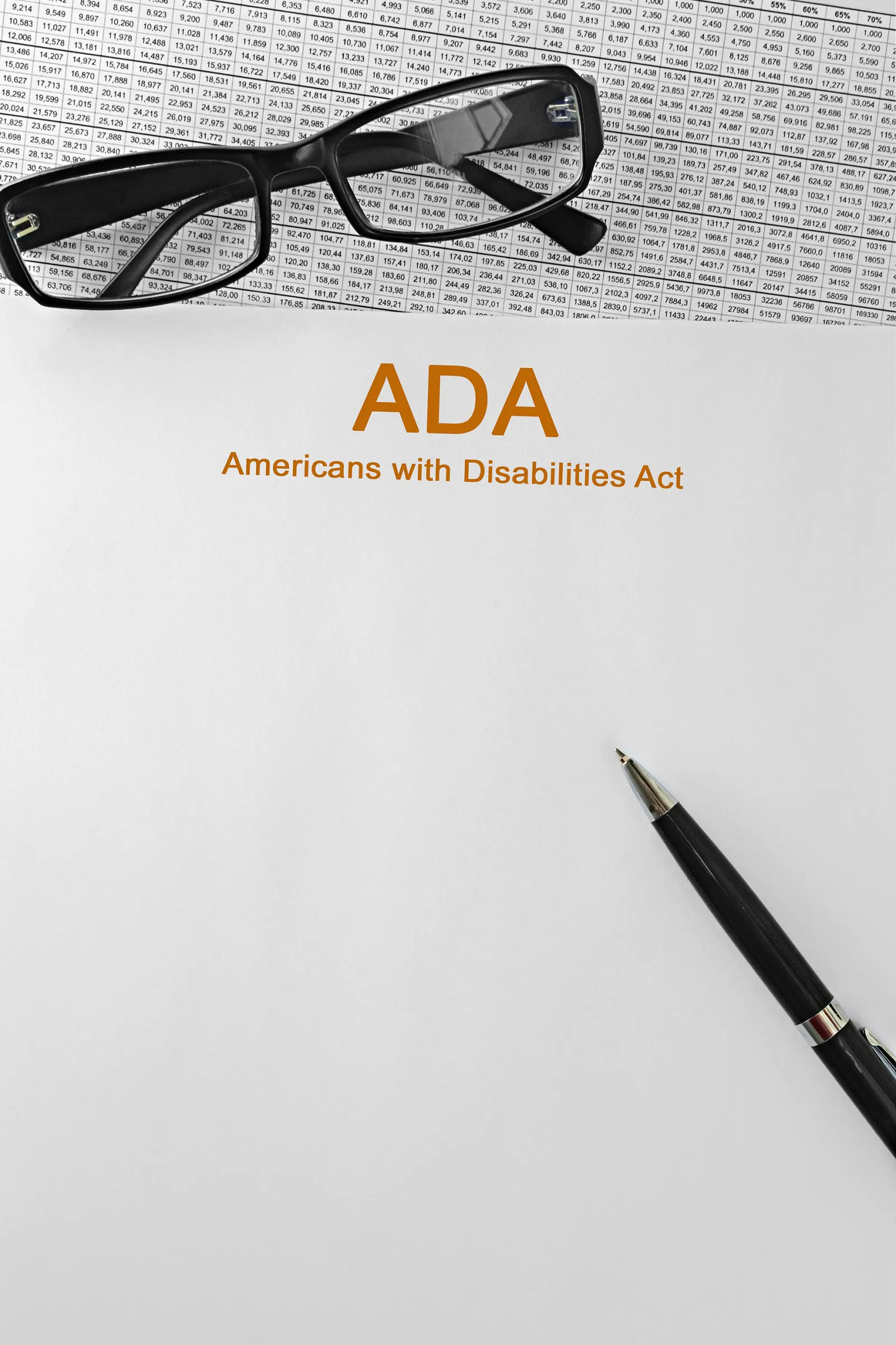When signed into law, the Americans with Disabilities Act instantly became the most comprehensive legislation pertaining to people with disabilities and their ability to navigate life without the prospect of facing discrimination. This includes everything from housing, employment, and access to public places. Modeled after the Civil Rights Act of 1964, the ADA is an "equal opportunity" law that can lead to inevitable consequences if not correctly followed.

Which brings us to the question: is ADA compliance mandatory? The answer is yes, but there are scenarios where the ADA does not offer protection to those who qualify. Here, we'll look at the ins and outs of ADA compliance and, more specifically, California ADA requirements.
Qualifying for the ADA
Before we broach the subject of compliance, we need to know who the ADA intends to protect. This is true with both ADA compliance California and federal compliance as well.
To qualify for protection under the ADA, one must possess a physical or mental impairment that significantly limits an individual in at least one part of their life. This can be noted in a few ways; if the individual has a record of said impairment, if the individual perceives that they have the impairment, or if others perceive the individual to have the impairment. There is a grey area here, as there is no list of impairments that qualify for the ADA in the law itself.
Protections Provided by the ADA
If an individual qualifies for ADA protections, they receive a big umbrella of protection from the law. These break down into five different categories:
- Employment: Employers cannot discriminate against potential employees specifically for having a disability. Employers are prohibited from discriminating against employees specifically for having a disability. This means that employers must provide adequate accommodations for those who may need them during the hiring process and throughout their employment.
- Public areas: Any land or building that receives public or government funding must comply with the ADA. Any events or activities in these areas must be accessible to people with disabilities, and people cannot be turned away because they have a disability. The ADA requires public buildings and parks to be accessible to all.
- Public services: Public services would include, for example, public transportation. Any public service must be accessible to all individuals.
- Communication: Telecommunication companies must provide proper communication devices for customers who may be deaf or hard of hearing.
- Miscellaneous: This is, in title alone, much broader. The idea is that individuals who have protection under the ADA cannot be threatened or retaliated because they have asserted the rights given to them by the ADA.
Fines for ADA Violations California
There are two levels of fines for those who do not meet the requirements set by ADA laws. Even the most minor penalty for not complying with the ADA is a huge hit, which was done intentionally to ensure that people and businesses comply with the law.
First-time offenders can expect to be fined $55,000. Any violation after that will be fined $110,000 for each violation. For example, if a business had a public elevator and a public restroom, and neither was compliant, they would be fined $220,000 (assuming they are not a first-time offender).
Publicly-owned places can lose all funding for ADA violations.
ADA Lawsuit California
The ADA is an especially relevant topic in California, as people have used the ADA to harm small businesses in a big way. This new law attempts to curb the rampant misuse of the ADA protections that we have seen in California (California holds 12% of the nation's population, but 40% of ADA violations have come in California.) In most of these cases, we find an opportunistic few who know the law and take advantage of those who don't, causing harm to small businesses and their families.
So, to answer the question: yes, you must comply with ADA regulations, and if you don't, you'll be faced with a stiff fine. However, California laws are enacted to protect small businesses from people with less than good intentions.
If you want to learn more or have questions about the ADA, please contact us at Krogh & Decker today.
